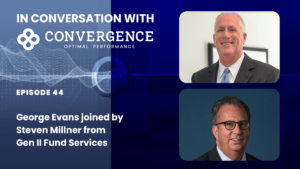Hedge Funds: Don’t Call Us a Hedge Fund
Managers are distancing themselves from the moniker
By Rob Copeland
March 26, 2015 4:21 p.m. ET
One of the keys to running a hedge fund is learning how to say you don’t.
Grappling with years of uneven performance, image problems and deep-pocketed clients who have publicly distanced themselves from the industry, hedge-fund managers are taking pains to avoid the moniker.
Baupost Group LLC, Och-Ziff Capital Management Group LLC and Pershing Square Capital Management LP are among the industry stalwarts looking to change the script. In communication with clients and public filings, they have ditched the term “hedge fund” in favor of catchall descriptors such as “alternative asset manager,” “investment holding company” and “private partnership.”
There is no single regulatory designation for a hedge fund, giving managers wide latitude in how they define themselves. Hedge funds’ popularity surged over the past decade as they came to represent, for many, the pinnacle of a Wall Street career. But some of the virtues that once added to the funds’ mystique—including the promise of big bets and hefty paychecks—have weighed on them of late.
“Labels can create a lot of emotions,” said David Kabiller, co-founder of AQR Capital Management LLC, which has $130 billion under management. He said even his own mother has a “perverse” reaction to the term hedge fund, and that AQR, based in Greenwich, Conn, uses the phrase to describe some of its offerings but typically only later in the marketing process, and after an investor does so first. “It’s easy to get lost in semantics,” he said.
There are practical reasons for firms’ shift away from the term. Some hedge funds stopped using it to avoid having their performance compared with certain peers. Others dropped the moniker to help them compete for money that is earmarked for more traditional fund managers, or to encompass internal arms that don’t actually place hedging bets. And firms have debuted new publicly traded vehicles that cater to less-wealthy investors.
Meanwhile, certain institutional investors like public pensions and university endowments are moving their hedge-fund investments to other portfolio categories or to hybrid products that share some, but not all, characteristics with hedge funds of yore.
Some investors are skeptical of the name changes.
“If it looks like a hedge fund and smells like a hedge fund, it’s a hedge fund,” said Brad Balter, an investor in hedge funds at Balter Capital Management LLC in Boston.
The U.S. Securities and Exchange Commission says hedge funds “pool investors’ money and invest the money in an effort to make a positive return.” Industry executives generally classify a hedge-fund manager as one who bets on and against markets—a so-called long-short strategy—and charges both an annual management fee and cut of any investment profits.
The number of hedge funds has soared in recent years. There were more than 8,000 hedge funds managing a cumulative $2.8 trillion at the end of 2014, a threefold increase in assets over a decade, according to HFR Inc., an industry researcher.
But only 1,176 firms use the term hedge fund in the “about us” section of their SEC investment adviser registration—and that figure is inflated by wealth managers and other third parties that advise clients on whether to put money in hedge funds, according to data from research firm Convergence Inc.
‘Labels can create a lot of emotions.’
—David Kabiller, co-founder of AQR Capital Management LLC
Divorcing oneself from the term isn’t just a business decision but a personal one, too. Mentions of hedge-fund employment in marriage announcements have declined by 20% since 2007, according to an analysis from Wedding Crunchers, which tracks specific phrases in New York Times wedding announcements.
Efforts to rebrand have spread to other parts of the lucrative world of alternative investments. David Rubenstein, founder of the private-equity giant Carlyle Group LP, for years has suggested, to little avail, that his industry be known as “change capital.”
Many hedge-fund managers drop the term quietly. In some recent cases, however, they have been eager to call attention to the distinction.
“We actually don’t see ourselves as a hedge fund,” Seth Klarman, founder of Baupost Group LLC, which has $29 billion under management, announced to investors in his most recent letter, according to a person familiar with the matter.
Baupost is the sixth biggest hedge-fund firm in the U.S., according to trade publication Absolute Return.
Mr. Klarman, in the letter, didn’t offer a singular alternative nomenclature, and lamented the need to “jam everything into categories.” He wrote he simply has “a broad mandate to own whatever is particularly compelling at a given time.”
Chuck Akre, who runs hedge and mutual funds at his $4.5 billion eponymous Akre Capital Management LLC in Middleburg, Va., said he typically avoids using the term. He said he would rather compare himself to a Warren Buffett-style investment firm than use terms associated with “speculation in the price movement of shares.”
When Och-Ziff prepared for its initial public offering in 2007, its offering document was rife with references to the hedge-fund industry. Now, the largest publicly traded hedge-fund firm in the U.S., Och-Ziff doesn’t mention the words hedge fund at all in its quarterly earnings reports or on its website. That can lead to some tortured verbiage: In its annual report, the firm says it provides “asset management services through our funds” and develops “new, carefully considered investment products.”
It isn’t until page 19 that there is an oblique reference to “investors in our multi-strategy hedge funds.” Those hedge funds amount to $34 billion, or roughly three-quarters of Och Ziff’s overall assets under management.
A spokesman declined to comment.
Takuma Aoyama, chief investment officer at AIFAM Inc., which helps wealthy institutions invest in hedge funds, said he learned firsthand the perils of the hedge-fund designation. He was running a Singapore hedge fund in 2008 to lend directly to local companies, and found many borrowers “fearful of anyone who claims to be a hedge fund from New York.”
He eventually closed the fund. “Maybe we should have branded differently,” he said.
![Single Post [Template] Single Post [Template]](https://www.convergenceinc.com/wp-content/uploads/2019/09/sean-pollock-PhYq704ffdA-unsplash-1.png)

